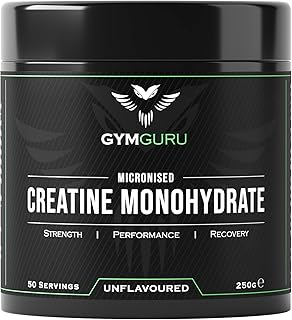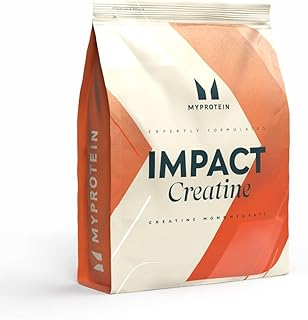Can Creatine Help Your Brain and Nervous System?
Let’s talk about creatine—yes, the gym staple for muscle gains. But did you know creatine isn’t just for fitness buffs? There’s growing excitement about its potential to support brain health and nervous system function. Let’s unpack what makes creatine such an intriguing option!

First Off, What Even Is Creatine?
Okay, so creatine is this cool little compound that your body makes from amino acids—the building blocks of proteins. It’s mostly made in your liver, kidneys, and pancreas, and then it’s stored in your muscles, brain, and other tissues that need a lot of energy.
Think of creatine like your body’s backup battery pack. About 95% of it hangs out in your muscles, ready to help you crush workouts. The rest? That’s chilling in your brain and other places that also demand lots of energy. Spoiler alert: your brain is a major energy hog.
How Does Creatine Work? The Science-y Stuff
Creatine’s all about energy. Here’s the deal:
1. Your Body’s Energy System
Your cells run on ATP—it’s like their fuel. But when your cells are working super hard (like when you’re lifting weights or deep in thought), they burn through ATP fast. That’s where creatine steps in.
ATP Recharge: Creatine stores itself as phosphocreatine, which helps recharge ATP. It’s like plugging your phone into a power bank—quick and efficient.
In your brain, this is HUGE. Brain cells need energy 24/7, especially during intense mental activities or when they’re trying to fix something that’s gone haywire.
2. Brain-Saving Superpowers
Creatine isn’t just about energy; it also plays defence:
Fights Oxidative Stress: Your brain uses tons of oxygen, and that can sometimes lead to nasty by-products called reactive oxygen species (ROS). Think of these as little troublemakers causing damage. Creatine helps keep them in check.
Stops Neuron Overload: Too much glutamate (a neurotransmitter) can overwhelm your brain cells, leading to damage. Creatine steps in like a bouncer, helping maintain balance.
3. Helps Mitochondria Do Their Thing
Mitochondria are the power plants of your cells. If they’re not happy, your cells aren’t happy—and that’s bad news for your brain. Creatine helps keep mitochondria running smoothly by buffering energy levels and managing calcium—which is super important for brain signalling.
4. Boosts Neurotransmitters
Creatine even has a hand in balancing brain chemicals like serotonin and dopamine. These guys affect everything from your mood to how well your brain communicates. Pretty interesting, right?

So, What About FND and Nervous System Issues?
Alright, let’s talk about FND. It’s a condition where your brain and body seem to have a communication breakdown. People with FND might have seizures, movement problems, or sensory issues—and doctors can’t always pinpoint why.
Creatine could actually help in a few key ways:
Energy Boost:
FND symptoms often come with brain energy problems. Creatine’s energy-recharging magic might help stabilize things.
Stress Relief for Your Brain:
With its antioxidant and neuroprotective powers, creatine could reduce the stress that’s messing with your brain cells.
Fixing Brain Network Glitches:
FND involves misfiring in brain networks. Creatine might give those circuits the energy they need to work properly again.
Mood and Clarity:
People with FND often deal with fatigue and brain fog. Creatine has shown potential to improve focus and even support a better mood. Double win!
Creatine’s Star Power in Other Neurological Conditions
Creatine’s benefits extend beyond FND, showing promise in several other conditions:
Traumatic Brain Injury (TBI): Creatine may aid recovery by protecting brain cells from further damage. Source: NIH (PubMed)
Parkinson’s Disease: It could slow cell loss by supporting mitochondrial function. Source: NIH (PMC)
Multiple Sclerosis (MS): Creatine might help alleviate fatigue, a common and debilitating symptom of MS. Source: PubMed
Depression and Anxiety: Some studies suggest creatine may improve energy levels and neurotransmitter balance. Source: NIH (PMC)
Fibromyalgia and ME/CFS: Creatine could help reduce fatigue and enhance overall energy levels, addressing key challenges in these conditions. Source: NIH (PubMed)
Thinking About Trying Creatine? Here’s What to Know
Creatine is one of the most researched supplements and is generally considered very safe for most people. The typical dose is 3–5 grams per day, which can support muscle function and energy production.
Side effects? They’re rare, but mild stomach discomfort can happen. That said, if you have pre-existing kidney issues, it’s important to be cautious, as creatine can put extra strain on your kidneys in some cases.
Always check with your doctor before adding creatine to your routine, especially if you’re considering it for a condition like FND.
Wrapping It Up
So, there you have it! Creatine might be a total game-changer for your brain and nervous system. It’s not just for gym buffs anymore. Whether you’re dealing with something like FND or just want to keep your brain in top shape, creatine’s energy-boosting, brain-protecting powers make it worth considering.
References
Traumatic Brain Injury (TBI): Creatine may aid recovery by protecting brain cells from further damage. Source: NIH (PubMed)
Parkinson’s Disease: It could slow cell loss by supporting mitochondrial function. Source: NIH (PMC)
Multiple Sclerosis (MS): Creatine might help alleviate fatigue, a common and debilitating symptom of MS. Source: PubMed
Depression and Anxiety: Some studies suggest creatine may improve energy levels and neurotransmitter balance. Source: NIH (PMC)
Fibromyalgia and ME/CFS: Creatine could help reduce fatigue and enhance overall energy levels, addressing key challenges in these conditions. Source: NIH (PubMed)
Cognitive Function in Healthy Individuals: Creatine supplementation may improve cognitive performance. Source: NIH (PMC)
Single-Dose Cognitive Benefits: A single dose of creatine has been shown to improve cognitive performance. Source: Nature (Scientific Reports)
Creatine and the Central Nervous System: Creatine supports various functions in the central nervous system, offering potential neurological benefits. Source: NIH (PubMed)
Brain Health and Cognitive Benefits: Creatine may provide cognitive and neurological benefits by supporting brain health. Source: Sci-Sport










Comments